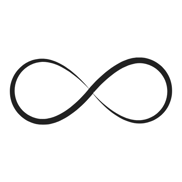There are certain moments that split your life in two: before and after. For me, one of those moments was the day my mum died. I was 18.
She was the strongest person I knew. She worked on a farm during the day and cared for people as a nurse at night. She never stopped. But beneath all that strength, there was a quiet struggle—one I didn’t fully understand at the time.
Part 1: Her Strength
My mum was love in motion. She didn’t sit still. There were animals to feed, uniforms to wash, shifts to cover, and somehow, she always had time for a hug. Even now, years later, I can still hear her voice calling me in for tea, see her hands cracked from work, feel the way her arms wrapped around me like I was still a child.
She was the centre of our small world in Mid Wales—a quiet town where everyone knew everyone. She wore her smile like armour, and I think that’s what confused me the most later on: how someone so full of life could have been carrying so much pain.
She drank. Quietly. Secretly. Bottles tucked away in places I wouldn’t find until years later. As a teenager, I didn’t understand it. I thought it was just something adults did. But now, looking back, I see it for what it was—a coping mechanism. An escape. Maybe even a cry for help she didn’t know how to voice.
Part 2: The Cancer
She was diagnosed with breast cancer when I was around 16. At first, it was like a word we couldn’t say too loudly. Cancer. The kind of word that made everyone go quiet. But she faced it head-on, just like she did everything else. Mastectomy. Chemotherapy. Hospital visits. Fatigue.
And yet… she stopped drinking. Just like that. It was as if the fight against cancer gave her another fight—one she could win. I remember feeling proud of her in a way I couldn’t explain, even if I was also scared out of my mind.
After the first wave of treatment, we thought maybe she’d beaten it. There was this brief window where things almost felt normal. She laughed more. She had more energy.
Then the pain started in her hip.
It was like the universe had hit pause and then pressed play again, but faster, and more cruelly. The cancer had spread. She needed an operation on her hip. Her body was failing, even though her spirit never did. Watching someone so vital, so full of movement, be reduced to hospital beds and whispered updates—that does something to you.
Part 3: The Day She Died
December 27th. That date is etched into me. Like a scar that never fully fades. She passed away from organ failure, her body too tired to keep going. I was 18.
Grief is strange. At first, I didn’t cry. I didn’t shout. I just felt… hollow. Like someone had turned down the volume on the world. Everything moved around me, but I stayed still. I remember walking through the house and feeling the absence of her in every room. The silence felt loud.
I didn’t know how to talk about it. I didn’t want to make anyone uncomfortable. I tried to be strong—whatever that meant. I distracted myself. I got through it by not going through it.
It would take years for me to really begin grieving. To let myself feel it. To look at her photos and not turn away. To remember her not just as someone I lost, but as someone I had—even if not for long enough.
Why I’m Writing This Now
This blog isn’t about having the answers. It’s about writing the things I didn’t say back then. It’s for my daughter, so she knows the people who came before her. It’s for anyone who’s lost someone they weren’t ready to lose. And it’s for me, too.
Because healing doesn’t come in one big wave. It comes in quiet moments—a memory, a smell, a song—and sometimes in writing the words you couldn’t speak out loud.
Thanks for being here.


